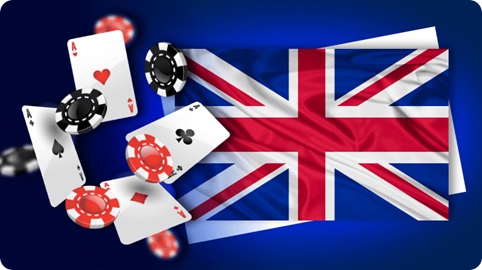
If you are considering a dispute, first check the operator’s policies and your own records — including the chargeback online casino uk terms Palm Casino — because the terms you agreed to and the payment details will shape the outcome of any chargeback attempt.
Chargebacks for online casino transactions in the UK are a tool provided by card networks and banks to reverse a payment when something has gone wrong: unauthorised transactions, fraudulent activity, or where the merchant has failed to deliver the service promised. However, gambling disputes have specific challenges. Casinos operate under complex rules, often across borders, and many transactions are considered gambling losses rather than defects in goods or services. That means a chargeback is not an automatic solution and should be used carefully.
When a chargeback might be appropriate
– Unauthorised use of your card (fraud): if someone used your card without permission.
– Clear merchant wrongdoing: the casino took funds and refuses to process a legitimate withdrawal without contractually valid reasons.
– Misrepresentation or bait-and-switch: the operator advertised bonuses or games that were not provided as described, and you can prove the misrepresentation.
– Processing errors: duplicate charges, incorrect amounts, or refunds not issued after a confirmed cancellation.
When a chargeback is less likely to succeed
– You lost money through gameplay: banks generally view gambling losses as the risk of play, not a merchant error.
– You accepted the terms and conditions that clearly explain limits or forfeiture (many casinos include specific bonus wagering requirements or withdrawal rules).
– The operator is legitimately licensed and followed its published rules in handling your account and payouts.
How to prepare before contacting your bank
– Collect transaction records: card statements showing dates and amounts.
– Save all communication: live chat logs, emails, screenshots of in-account balances, game history and timestamps.
– Note the operator’s identity and licence status: UK Gambling Commission (UKGC) licence numbers or other regulator details.
– Read the casino’s terms and conditions closely for clauses about bonuses, withdrawals and dispute procedures.
– Attempt internal escalation: contact the casino support, request a formal complaint and keep proof of your attempts and their responses.
Filing the chargeback with your card issuer
Contact your card issuer as soon as possible. Card schemes have time limits (varying by issuer and by reason code); many banks expect disputes to be raised within a few months of the transaction, though some schemes allow longer windows for fraud or unauthorised claims. Explain the reason clearly and provide the documentation you gathered. The bank will log a provisional chargeback and investigate.
What happens after you file
– The issuing bank reviews your claim and may provisionally credit your account.
– The bank submits the dispute to the card network, which notifies the acquiring bank and the merchant.
– The casino can either accept the chargeback and return the funds, or contest it by providing evidence (transaction logs, player agreement acceptance, game history, IP addresses, KYC/identity documents, and proof of responsible gaming checks).
– The issuer reviews the merchant’s response and decides whether to uphold or reverse the provisional credit. Some disputes move to arbitration by the card scheme if neither side concedes.
Evidence that strengthens your case
– Proof of unauthorised use: police reports, confirmation that you did not authorise the transaction.

– Communications showing the operator refused a valid withdrawal or misrepresented terms.
– Screenshots of account balance immediately before and after disputed transactions, timestamps, and game round histories that show irregularities.
– KYC failures: if the operator accepted payment without proper identity checks or processed duplicate payments, that can be relevant.
Regulatory routes and independent adjudicators
If the casino is UK-licensed, you can pursue a complaint with the operator, escalate to the UKGC or an alternative dispute resolution service recognized by the licence (for many UK operators, the Independent Betting Adjudication Service — IBAS — or another ADR provider can be used). These bodies may review fairness and compliance with licence conditions and sometimes obtain results that a card-based chargeback cannot.
Risks and consequences of pursuing a chargeback
– Account closure: operators may close player accounts suspected of chargeback abuse or fraud.
– Confiscation of winnings: casinos often reserve the right to withhold winnings where a dispute is ongoing or where terms have been breached.
– Reputation flags: multiple disputes may trigger investigations by banks or card schemes.
– Not guaranteed: even with good evidence, outcomes depend on the issuer’s view, the merchant’s defence, and applicable rules.
Alternatives to chargeback
– Exhaust the operator’s complaints process and escalate to ADR or the regulator.
– Seek mediation via consumer protection bodies or forums specific to gambling disputes.
– In clear cases of fraud, report to Action Fraud (UK) and ask your bank to treat the transaction as unauthorised, which can be a more effective route in pure fraud scenarios.
Practical tips to improve chances of success
– Act quickly: gather evidence and contact your bank without undue delay.
– Be factual and concise: banks and adjudicators prefer clear timelines and verifiable documentation.
– Preserve all account data: do not delete chats or emails, and take multiple screenshots.
– Check payment routes: transactions routed through third-party processors or off-shore entities can complicate chargebacks—know who accepted the payment.
– Consider legal advice for large sums: a solicitor experienced in gambling disputes can help map regulatory and contractual options.
Common misconceptions
– A chargeback will always get your money back: not true. Banks must follow scheme rules and consider the merchant’s evidence.
– UK licence guarantees a refund: licence compliance helps, but it does not mean every disputed bet will be overturned.
– Charging back cancels all obligations: even after a successful chargeback, the operator may pursue reconciliation or legal action if they can prove breach of contract.
Conclusion
Chargebacks can be a useful remedy in cases of unauthorised payments, clear operator misconduct, or processing errors, but they are not a catch-all for gambling losses. For the best outcome: document everything, try the operator’s complaint procedures first, verify licence status, and contact your bank promptly with a clear, evidence-backed claim. If the case is complicated or involves significant sums, consider arbitration through recognised ADR schemes or legal advice to navigate the interplay of contract, licence conditions and card scheme rules. Thoughtful, evidence-driven action improves your chances of a fair resolution when disputing an online casino payment in the UK.
